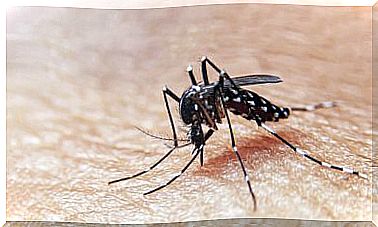How To Tackle The Problem Of Migraines
Have you ever had a headache? There are those who suffer them often and, for this reason, they need to find a way to combat migraines. Currently, the best option is to go to your family doctor to advise you on the best appropriate treatment for your case.
The drugs that have proven their effectiveness and, therefore, that are commonly used to combat migraines are of two types. On the one hand, painkillers, used during attacks to stop symptoms. On the other hand, preventive medications, taken more frequently and aimed at reducing the intensity or frequency of this problem.
How can we fight migraines?
1. Practicing exercise

Low-impact physical activity (colloquially known as “gentle exercise”) can help reduce tension and avoid stress, two triggers known to many migraine sufferers. This is stated by a study published in The Journal of Headache and Pain.
Exercise also triggers the release of endorphins, which act as a mild sedative. 150 minutes of moderate aerobic activity or 75 minutes of vigorous aerobic activity per week is recommended, ideally spread throughout the week.
2. Riboflavin (vitamin B2) against migraines
Riboflavin is another of the natural remedies to combat migraines. When consumed in abundance (400 mg per day for three months), it helps reduce the pain of migraines before they appear, that is, if you consume riboflavin only when the migraine appears, it will not reduce the crisis.
Taking riboflavin along with a B complex supplement is recommended, as riboflavin increases the absorption of other essential nutrients, such as iron, zinc, folate, vitamin B3, and vitamin B12. This statement is contrasted in an article published in the European Journal of Neurology.
You can find this vitamin in foods like liver, lean meat, lamb, whole grains, yogurt, low-fat milk, eggs, almonds, asparagus, broccoli, and spinach. Do not forget to store food away from light, as it destroys riboflavin.
3. Magnesium

Magnesium helps relax nerves and muscles and transmits nerve impulses throughout the body and brain. In addition, it prevents the nerves from being overexcited.
It is recommended to consume 200 to 600 mg of magnesium per day, while others recommend 1000 mg. Check with your doctor to tell you if you should take a supplement and in what amount.
You can also take advantage of the contribution of this nutrient offered by the following foods:
- Soy.
- Swiss chard.
- Salmon.
- Amaranth.
- Spinach.
- Flax seeds.
- Black beans
- Pumpkin seeds.
- Sesame seeds.
- Sunflower seeds.
4. Chamomile to mitigate migraines
Chamomile can help relieve pain by reducing inflammation, especially in the blood vessels of the brain. Also, it can help calm vomiting and nausea in people experiencing these symptoms.
Note: Talk to your doctor before taking any natural remedies and avoid them if you are pregnant or planning to have a baby. Also keep in mind that they can interact with certain drugs.
5. Omega 3 fatty acids

Omega-3 fatty acids protect brain cells and reduce inflammation, so they can help reduce pain caused by migraines.
In addition, omega-3s are beneficial in reducing the frequency and duration of these pains. Its capabilities include modulating the levels of inflammation in the human body, which is beneficial in maintaining good health. The pathophysiology of migraine is not known for sure, but it is believed that chronic low-grade inflammation could be behind it.
You find fatty acids in salmon, tuna, mackerel, rainbow trout, oysters, sardines, walnuts, chia seeds, and flax.
Improve habits to fight migraine
By paying attention to lifestyle habits, the incidence of migraine can be significantly reduced. It is important to prioritize the consumption of fresh food, with anti-inflammatory capabilities. At the same time, it is optimal to carry out physical exercise frequently and guarantee a correct rest.
However, the causes of migraine are not always perfectly described in the literature. For example, those associated with the menstrual cycle still have several unknowns. Sometimes they can only be controlled with drugs, although it is clear that a change in habits significantly reduces their frequency and intensity.
If you suffer from migraine frequently, consult a doctor and a nutritionist. Both will be able to give you appropriate advice to reduce the discomfort that this problem generates.









